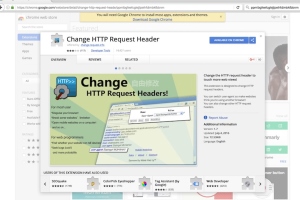Facebook and Google targeted as first GDPR complaints filed
 Facebook and Google have become the targets of the first official complaints of GDPR noncompliance, filed on the day the privacy law takes effect across the EU.
Facebook and Google have become the targets of the first official complaints of GDPR noncompliance, filed on the day the privacy law takes effect across the EU.
Across four complaints, related to Facebook, Instagram, WhatsApp and Google’s Android operating system, European consumer rights organisation Noyb argues that the companies have forced users into agreeing to new terms of service, in breach of the requirement in the law that such consent should be freely given. Max Schrems, the chair of Noyb, said: “Facebook has even blocked accounts of users who have not given consent.”
Read moreGoogle sued for 'clandestine tracking' of 4.4m UK iPhone users' browsing data
![]() Google is being sued in the high court for as much as £3.2bn for the alleged “clandestine tracking and collation” of personal information from 4.4 million iPhone users in the UK.
Google is being sued in the high court for as much as £3.2bn for the alleged “clandestine tracking and collation” of personal information from 4.4 million iPhone users in the UK.
The collective action is being led by former Which? director Richard Lloyd over claims Google bypassed the privacy settings of Apple’s Safari browser on iPhones to divide people into categories for advertisers. Lawyers for Lloyd’s campaign group Google You Owe Us told the court information collected by Google included race, physical and mental heath, political leanings, sexuality, social class, financial, shopping habits and location data.
Read moreAustralia looking into claim Google harvests data while consumers pay
 Google is under investigation in Australia following claims that it collects data from millions of Android smartphone users, who unwittingly pay their telecom service providers for gigabytes consumed by the activity, regulators said on Tuesday.
Google is under investigation in Australia following claims that it collects data from millions of Android smartphone users, who unwittingly pay their telecom service providers for gigabytes consumed by the activity, regulators said on Tuesday.
Responding to the latest privacy concerns surrounding Google, a spokesman for the U.S. based search engine operator said the company has users’ permission to collect data. “Any charges for transmission of data over a cellular connection, including any location-related data, would be governed by a user’s mobile carrier plan,” Google said in a statement.
Read moreGoogle is testing self-destructing emails in new Gmail
 Google is working on a brand new design for the web version of Gmail. Yesterday, I published screenshots of the new design. TechCrunch’s tipster Chaim also discovered an interesting new feature in the new Gmail. You’ll soon be able to send expiring emails.
Google is working on a brand new design for the web version of Gmail. Yesterday, I published screenshots of the new design. TechCrunch’s tipster Chaim also discovered an interesting new feature in the new Gmail. You’ll soon be able to send expiring emails.
Working on an email service is hard as you have to be compatible with all sorts of email providers and email clients. But it doesn’t seem to be stopping Google as the company is now evolving beyond the simple POP3/IMAP/SMTP protocols. Based on those screenshots, expiring emails work pretty much like expiring emails in ProtonMail. After some time, the email becomes unreadable.
Read moreGoogle’s new AI algorithm predicts heart disease by looking at your eyes
 Scientists from Google and its health-tech subsidiary Verily have discovered a new way to assess a person’s risk of heart disease using machine learning.
Scientists from Google and its health-tech subsidiary Verily have discovered a new way to assess a person’s risk of heart disease using machine learning.
By analyzing scans of the back of a patient’s eye, the company’s software is able to accurately deduce data, including an individual’s age, blood pressure, and whether or not they smoke. This can then be used to predict their risk of suffering a major cardiac event — such as a heart attack — with roughly the same accuracy as current leading methods. The algorithm potentially makes it quicker and easier for doctors to analyze a patient’s cardiovascular risk, as it doesn’t require a blood test.
Read moreGoogle exposes security flaw in Microsoft Edge
 Google's Project Zero initiative tasks its security researchers with finding flaws in various software products developed by the company itself as well as other firms. Back in 2016, it revealed a serious vulnerability present in Windows 10, and reported a "crazy bad vulnerability" in Windows in 2017.
Google's Project Zero initiative tasks its security researchers with finding flaws in various software products developed by the company itself as well as other firms. Back in 2016, it revealed a serious vulnerability present in Windows 10, and reported a "crazy bad vulnerability" in Windows in 2017.
Now, the firm has disclosed another security flaw in Microsoft Edge, after the Redmond giant failed to fix it in the allotted time. Back in February 2017, Microsoft stated that it would be using Arbitrary Code Guard (ACG) in Microsoft Edge with the Windows 10 Creators Update to mitigate arbitrary native code execution.
Read moreEarly Facebook and Google employees form coalition to fight what they built
 A group of Silicon Valley technologists who were early employees at Facebook and Google, alarmed over the ill effects of social networks and smartphones, are banding together to challenge the companies they helped build.
A group of Silicon Valley technologists who were early employees at Facebook and Google, alarmed over the ill effects of social networks and smartphones, are banding together to challenge the companies they helped build.
The cohort is creating a union of concerned experts called the Center for Humane Technology. Along with the nonprofit media watchdog group Common Sense Media, it also plans an anti-tech addiction lobbying effort and an ad campaign at 55,000 public schools in the United States. The campaign, titled The Truth About Tech, will be funded with $7 million from Common Sense and capital raised by the Center for Humane Technology.
Read moreGoogle Chrome extensions with 500,000 downloads found to be malicious
 Researchers have uncovered four malicious extensions with more than 500,000 combined downloads from the Google Chrome Web Store, a finding that highlights a key weakness in what's widely considered to be the Internet's most secure browser.
Researchers have uncovered four malicious extensions with more than 500,000 combined downloads from the Google Chrome Web Store, a finding that highlights a key weakness in what's widely considered to be the Internet's most secure browser.
Google has since removed the extensions. Researchers stumbled on the find after detecting a suspicious spike in outbound network traffic coming from a customer workstation. They soon discovered it was generated by a Chrome extension called HTTP Request Header as it used the infected machine to surreptitiously visit advertising-related Web links.
Read moreUK class action accuses Google of unlawfully harvesting personal data
 More than 5 million people in the UK could be entitled to compensation from Google if a class action against the internet giant for allegedly harvesting personal data is successful.
More than 5 million people in the UK could be entitled to compensation from Google if a class action against the internet giant for allegedly harvesting personal data is successful.
A group led by the former executive director of consumer body Which?, Richard Lloyd, and advised by City law firm Mischon de Reya claims Google unlawfully collected personal information by bypassing the default privacy settings on the iPhone between June 2011 and February 2012. They have launched a legal action with the aim of securing compensation for those affected. The group says that approximately 5.4 million people in Britain used the iPhone.
Read moreGoogle's AI can now spot shoulder-surfers peeking at your screen
 Google researchers have developed a privacy application that can instantly detect when a stranger glances at your screen over your shoulder.
Google researchers have developed a privacy application that can instantly detect when a stranger glances at your screen over your shoulder.
Researchers will demonstrate their shoulder-surfing warning system at next month's Neural Information Processing Systems Conference. The pair haven't released a paper that explains technology, but a video demonstration suggests they've installed a lightweight machine-learning model on a Pixel smartphone that uses its front-facing camera for rapid gaze detection. When the user holds a phone up to chat or view a private video, the algorithm will detect when someone looking at the screen too.
Read moreAxarhöfði 14,
110 Reykjavik, Iceland















